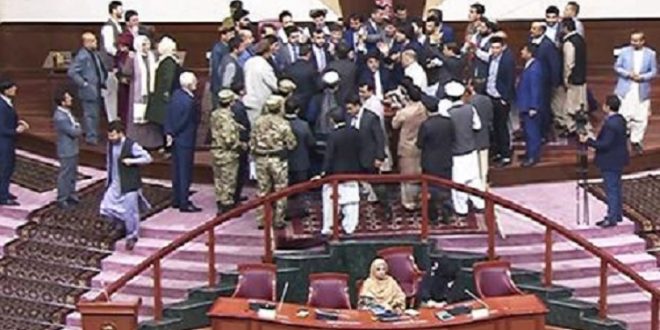The 17th legislative term of the Wolesi Jirga or the Lower House of Parliament of Afghanistan was inaugurated in April this year after four years of postponement due to long delays in holding the parliamentary election by the National Unity Government (NUG). The current term of the parliament since its launch has been facing various and a myriad of difficulties up till now. The first problem was the row over the election of the house speaker which led to more than a month-long deadlock. It ended after the Speaker of the Wolesi Jirga, Mir Rahman Rahmani, was finally elected. Moreover, the most current and crucial problem is the lack of quorum at the parliament, rendering it futile in carrying out its activities properly. Fed up with the irresponsible behavior by the lawmakers, Rahmani has recently asked the house secretary to reveal the names of the long-absent lawmakers by exposing them to media and people. With this absenteeism negatively impacting the legislative process, the Wolesi Jirga has reportedly failed to decide on even a single article in three months. According to reports, only five meetings of the lower house have been held with appropriate agenda this year while the remaining ones had no specific topics due to the absence of a remarkable number of members – something that had left a bad impact on its routine works.
It had been earlier said that the public representatives had been busy campaigning for their favorite presidential candidates. However, it’s been more than three weeks since the presidential election occurred but they are still absent. Meanwhile, another claim that emerged recently is that some MPs accuse fellow parliamentarians of indulging in corruption-tainted contracts of supplying fuel to the foreign forces. Allegedly, the said lawmakers illegally import thousands of liters of fuel into the country per day with exemption from tariffs and then sell that fuel in the open market. They were accused of embezzlement of the national budget. Furthermore, about a week ago,lawmakers alleged they were insulted by police when they were stopped for checking. Surprisingly, they then invited other colleagues to join them and summoned the interior minister for clarification to the parliament as their clash dragged late into the midnight. This happened as police personnel usually remove tinted car windows and stop vehicles for check-up across Kabul city while MPs see themselves above law and don’t accept such things.
All these actions and blunders of the parliament signify that it isn’t seemingly a proper representative of the masses, as well as that its members pay no heed to national interests. One of the parliament’s main roles is to examine and challenge the work of the government and discharge its function of oversight over ministries’ performance. However, when its members don’t follow the official code of conduct, how would it overlook over the executive branch and tackle all political, economic and social challenges the country is currently facing. At this juncture, Afghanistan needs a powerful parliament with vigilant members – something that it is not – in order to help alleviate the sufferings of Afghans and fight for the preservation of the last 18 years’ achievements, particularly at a time when the peace process with the Taliban has already broken down. They are advised to be a bit considerate of the country’s situation and hold quo rate and plenary sessions; otherwise, they should face disciplinary action and the long-absent lawmakers’ membership should be suspended in order for this action to be a lesson for the rest. Currently, the Wolesi Jirga sessions have turned into big meetings of idle people who pursue personal interests because it has had no tangible and positive results so far other than being a headache for the citizens. The lower house should avoid being as such and instead work for handling the pressing issues of the country and carry on its legislative duties in the best possible manner.
 Afghanistan Times
Afghanistan Times




